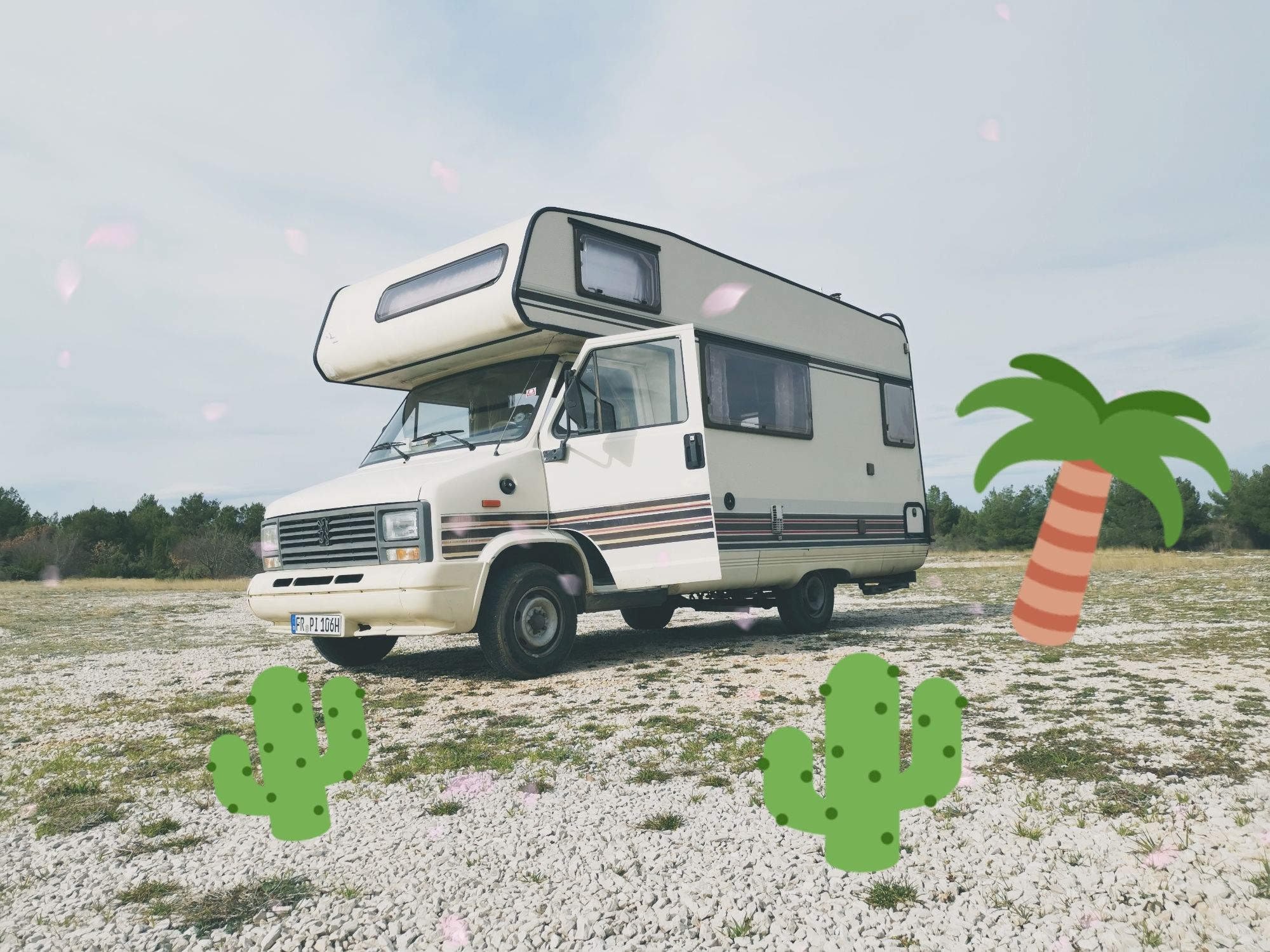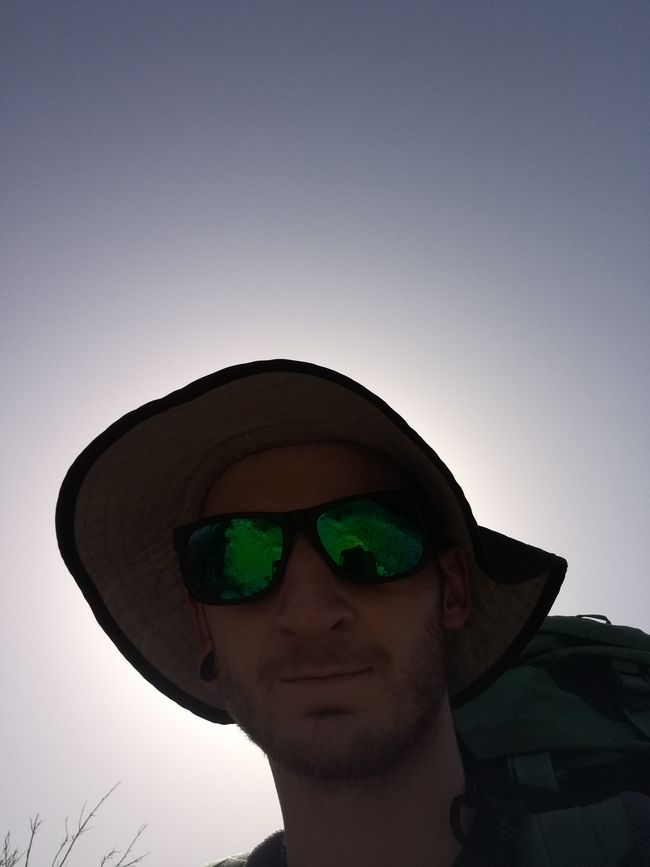Peja/Decan/ River Camping
Atejade: 26.07.2023
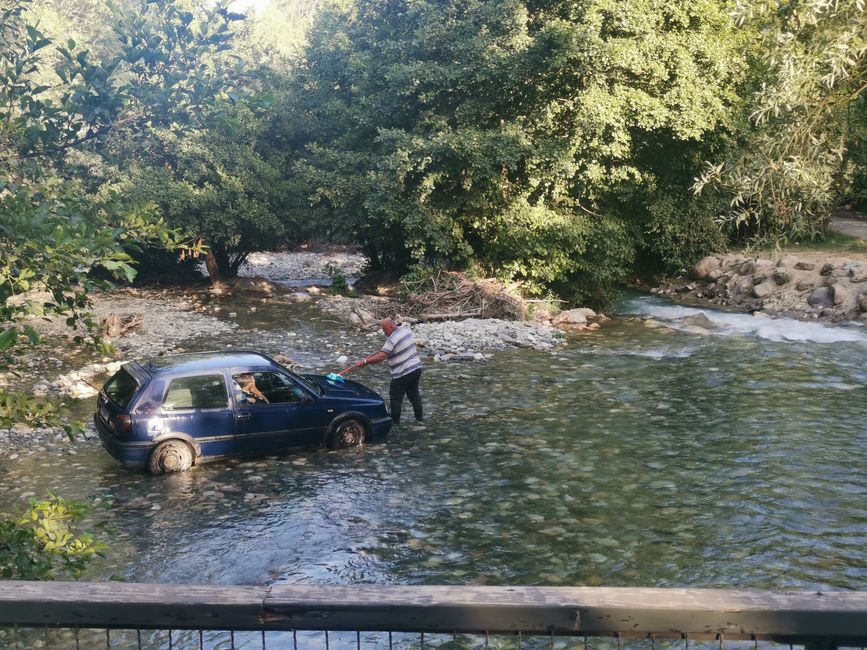
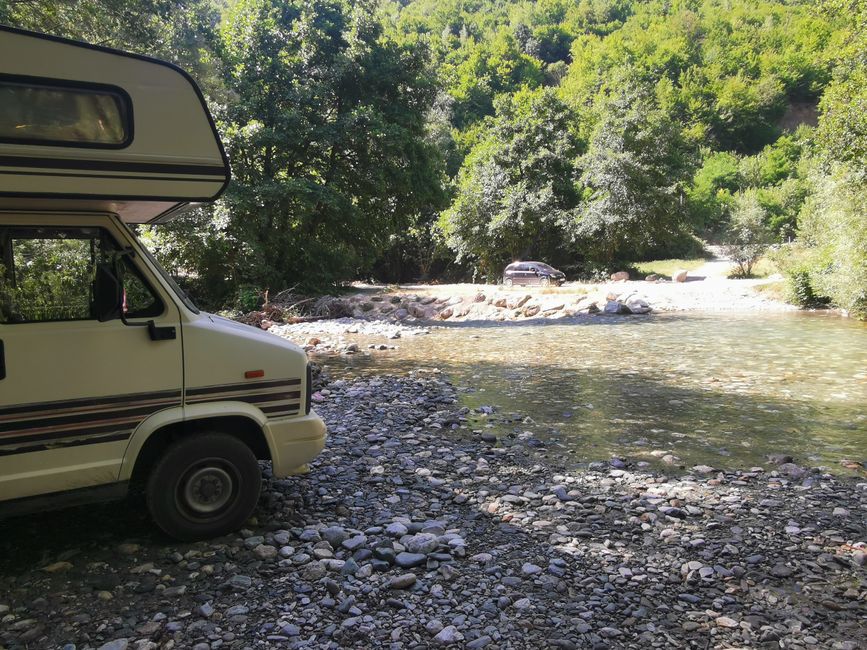
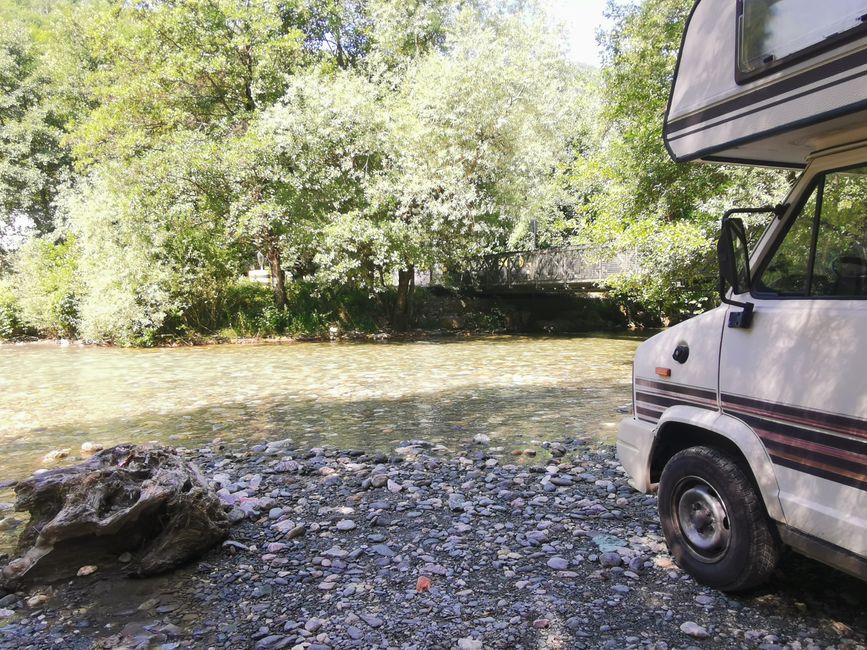
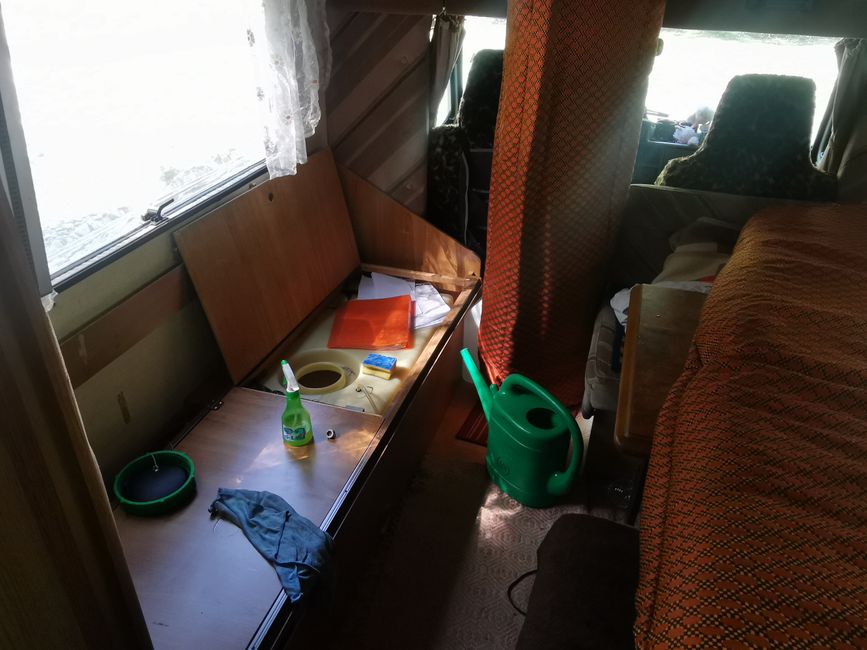
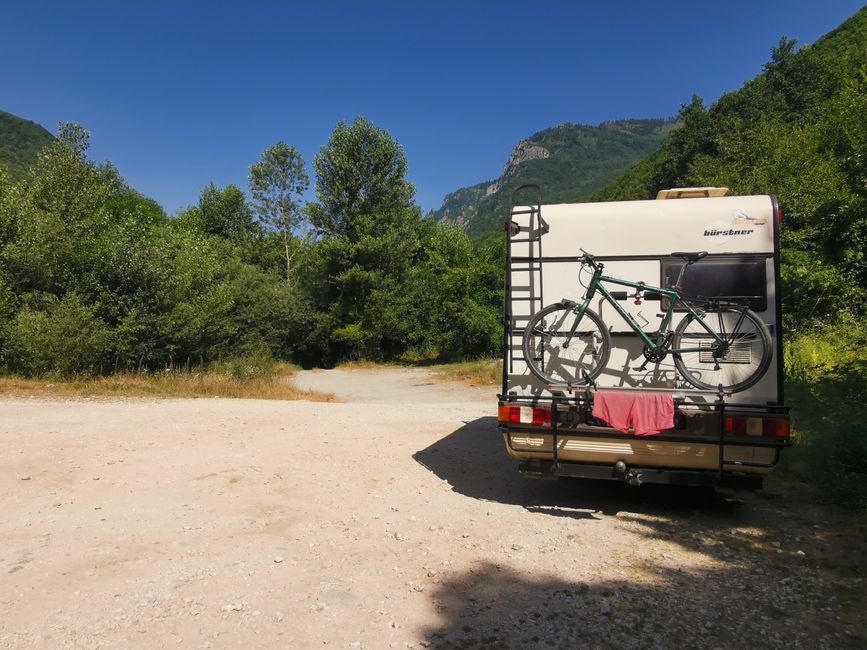
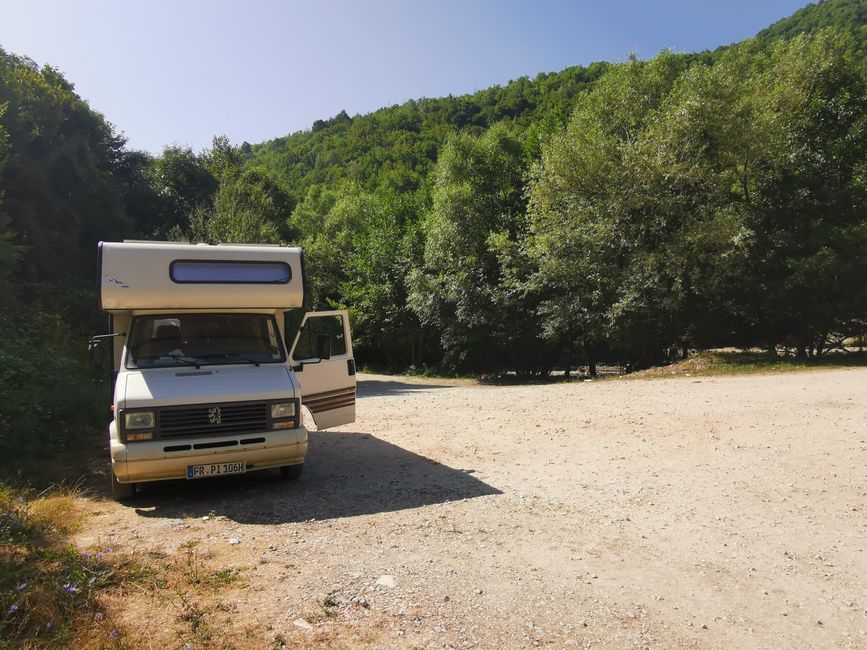
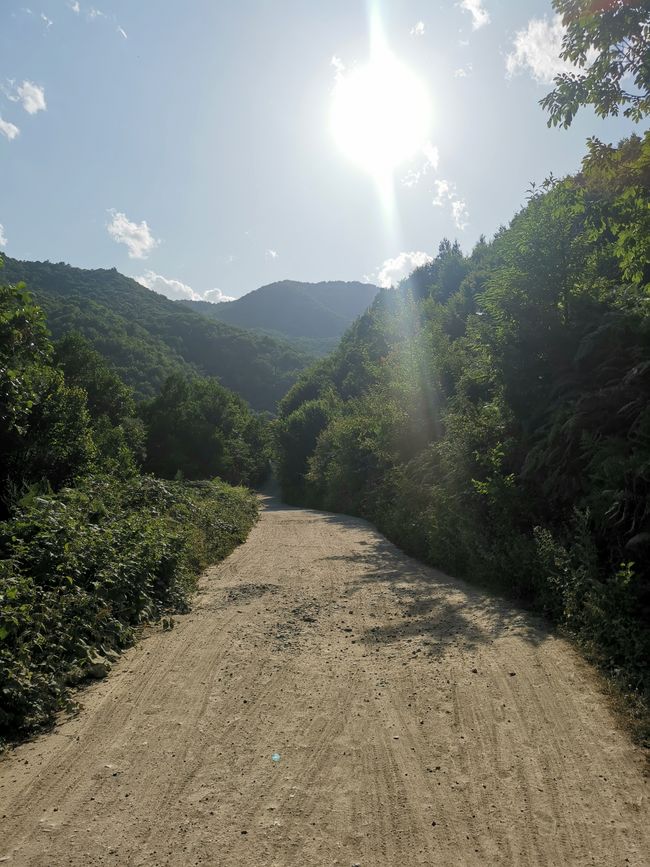
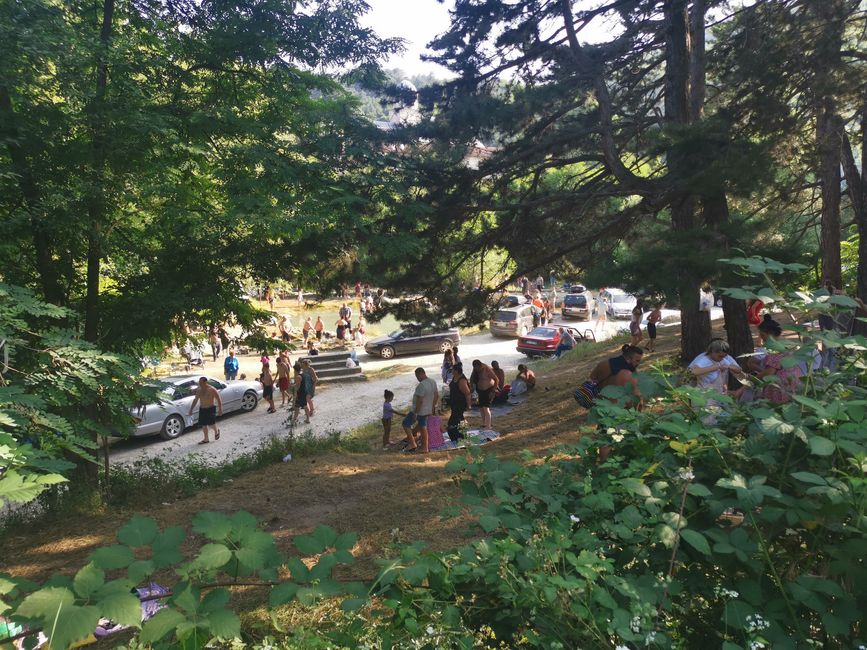
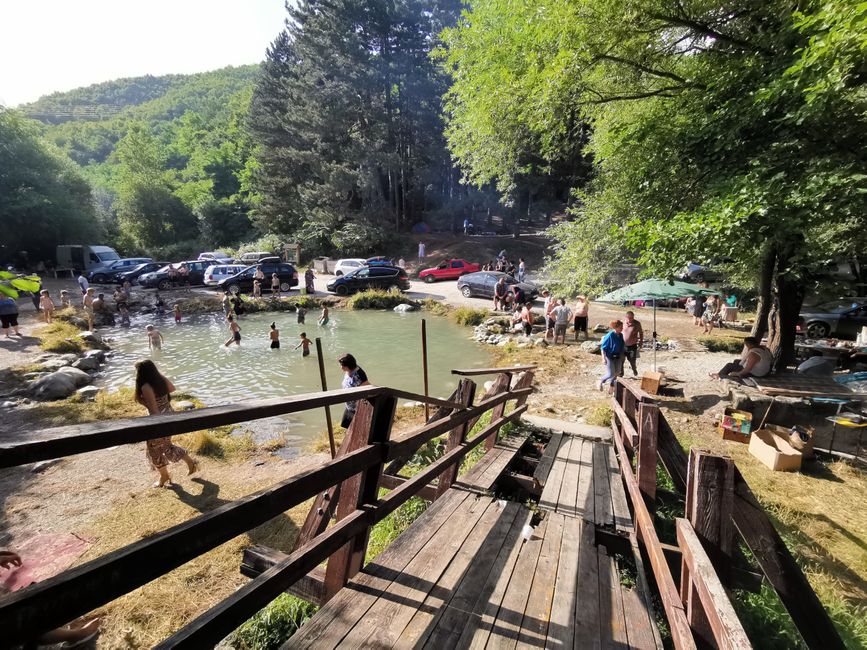
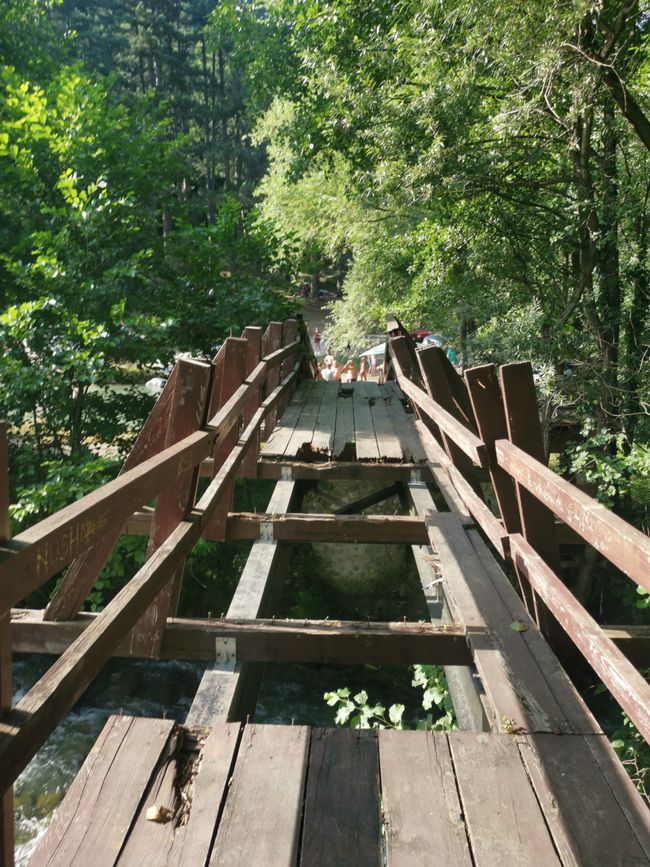
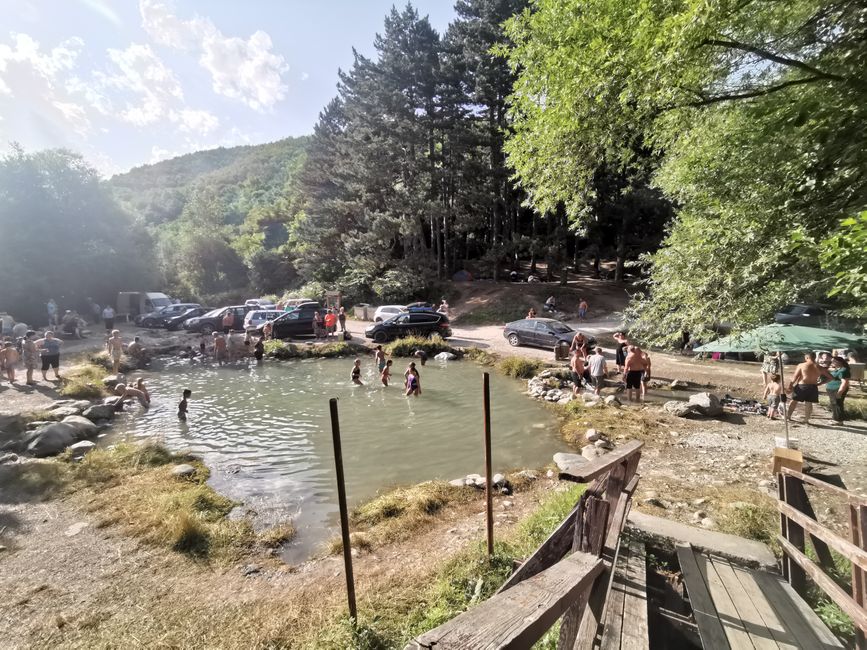
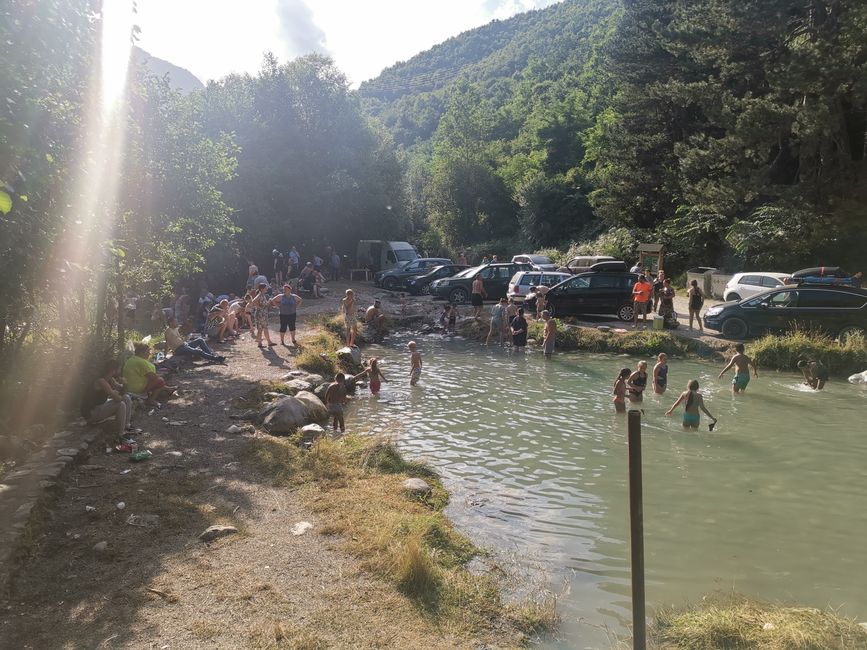
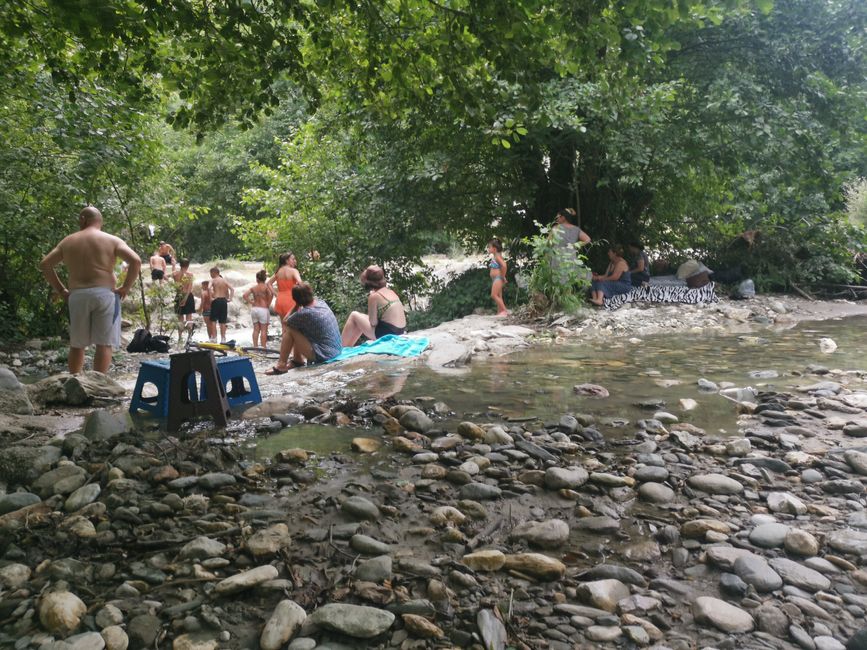
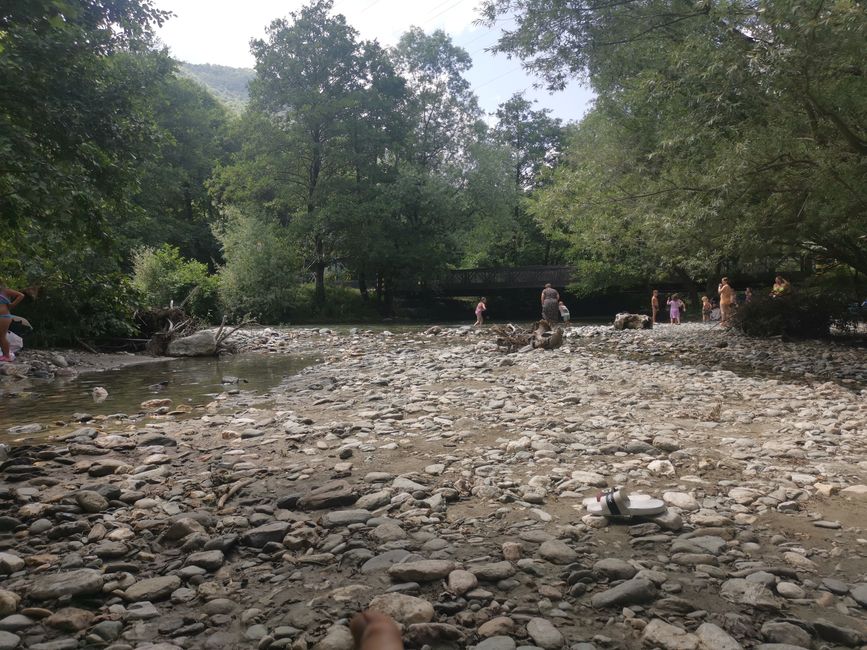
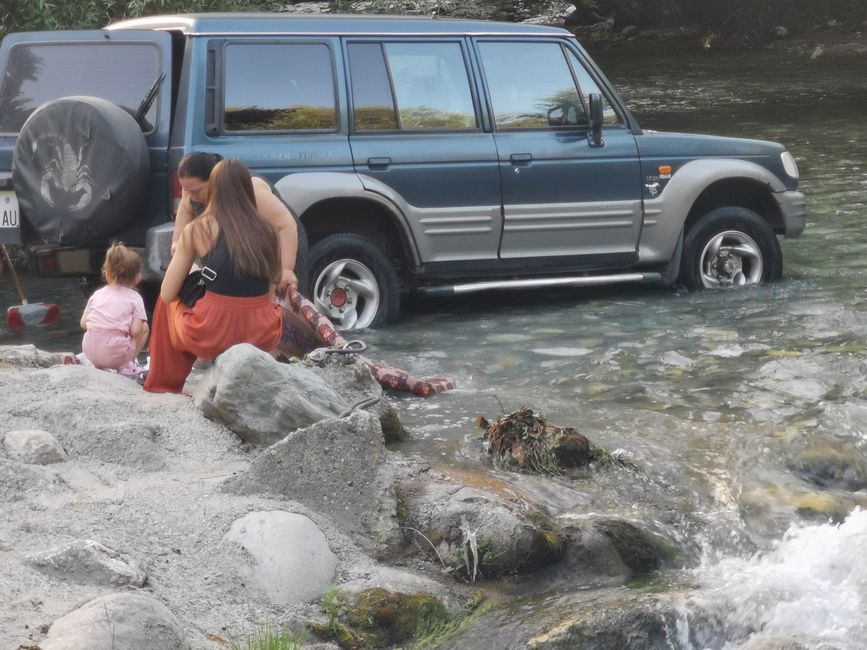
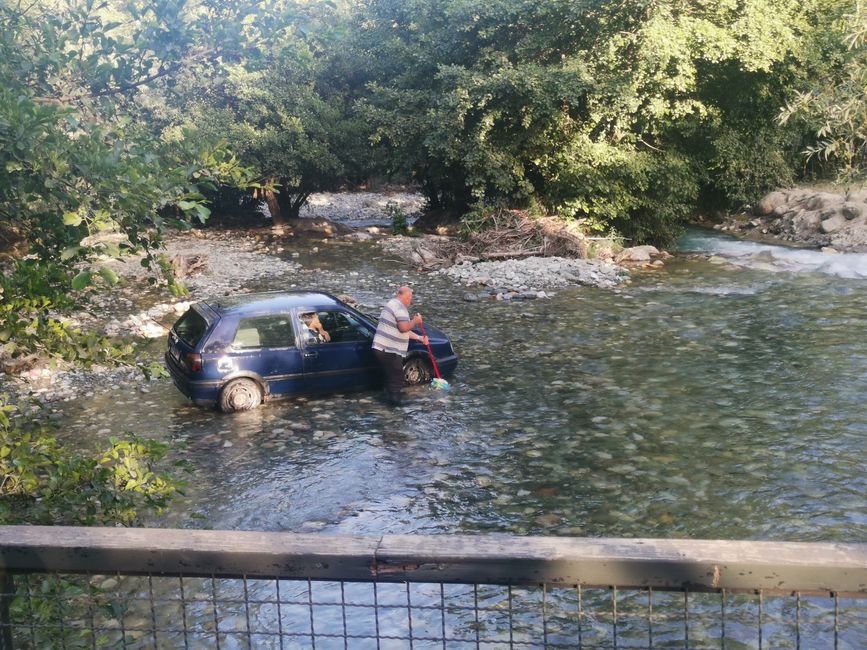
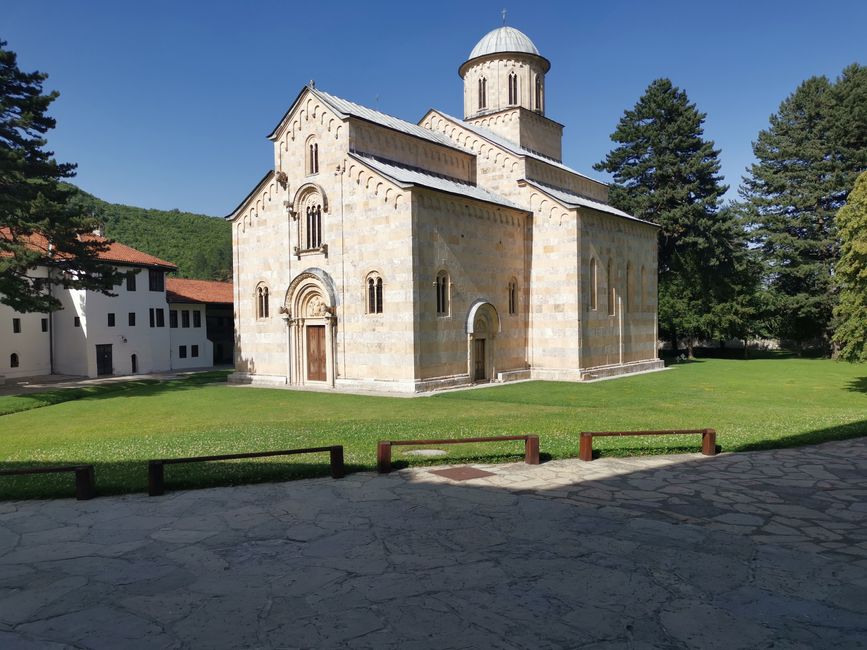
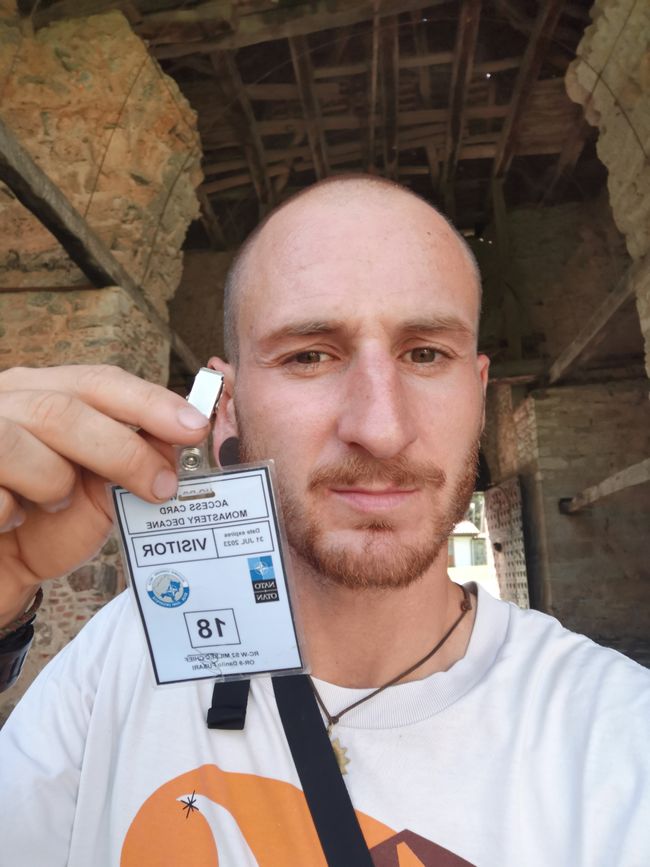
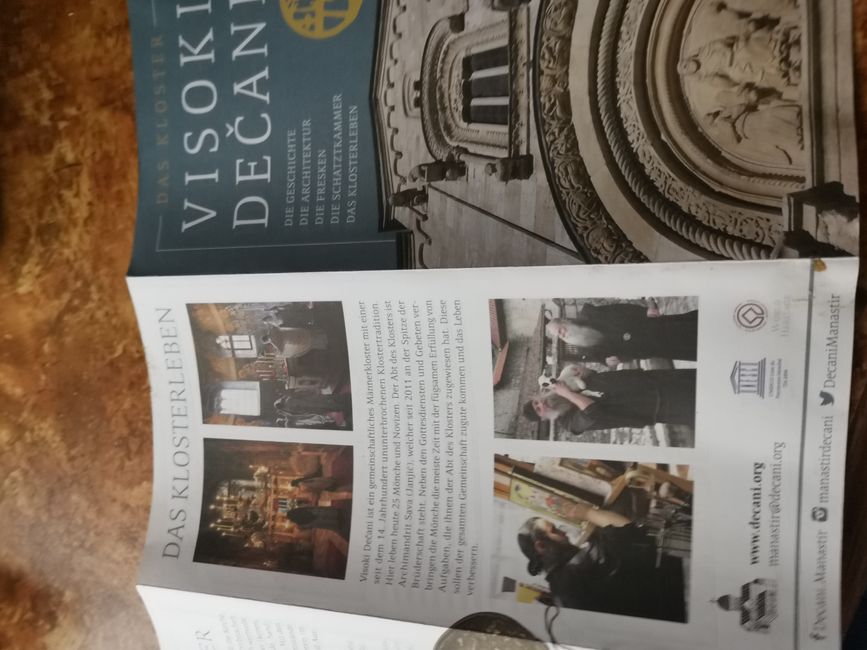
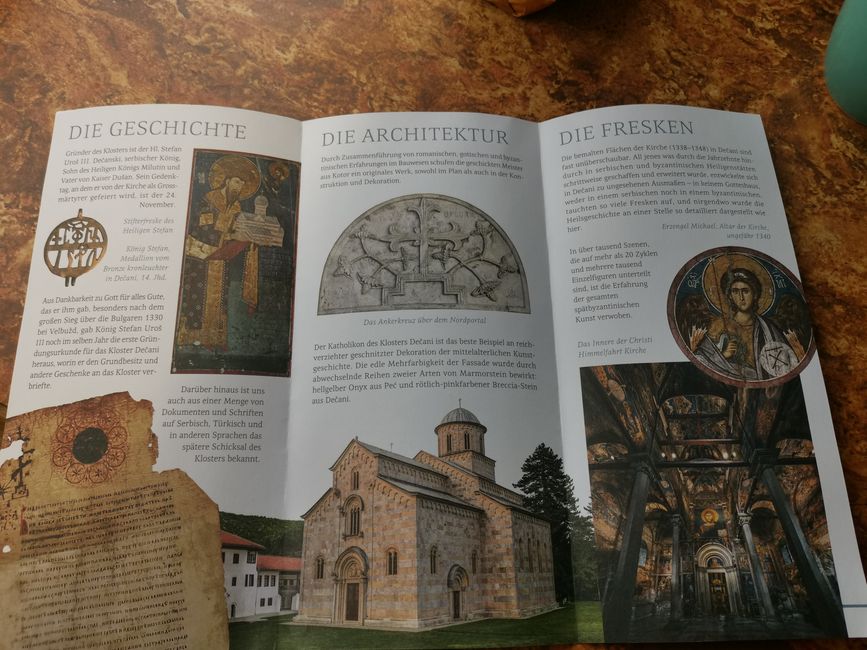
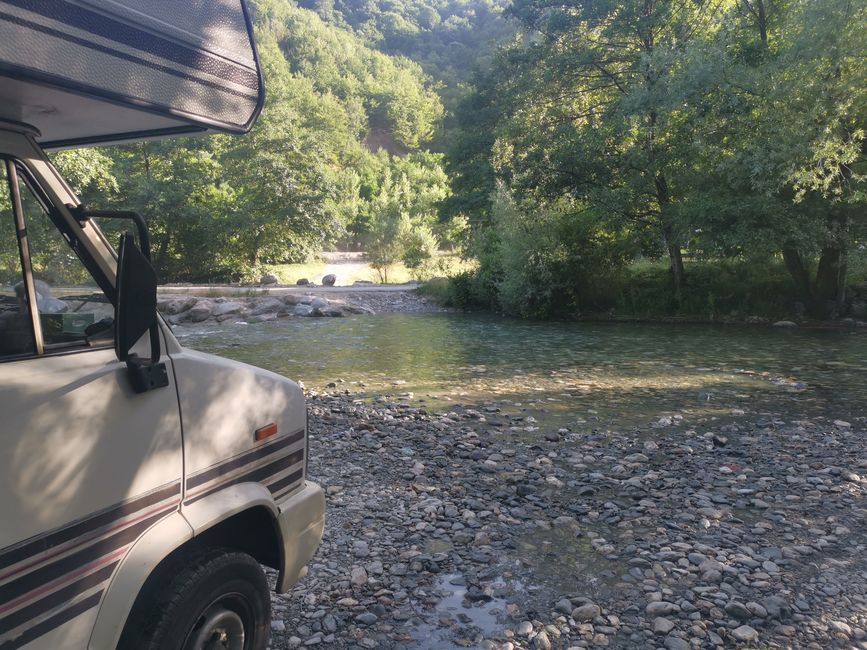
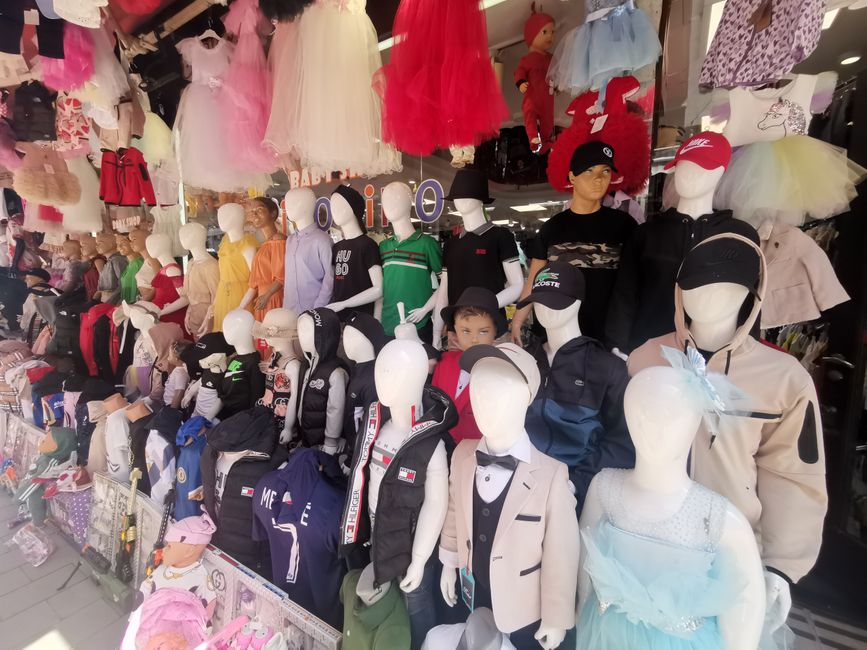
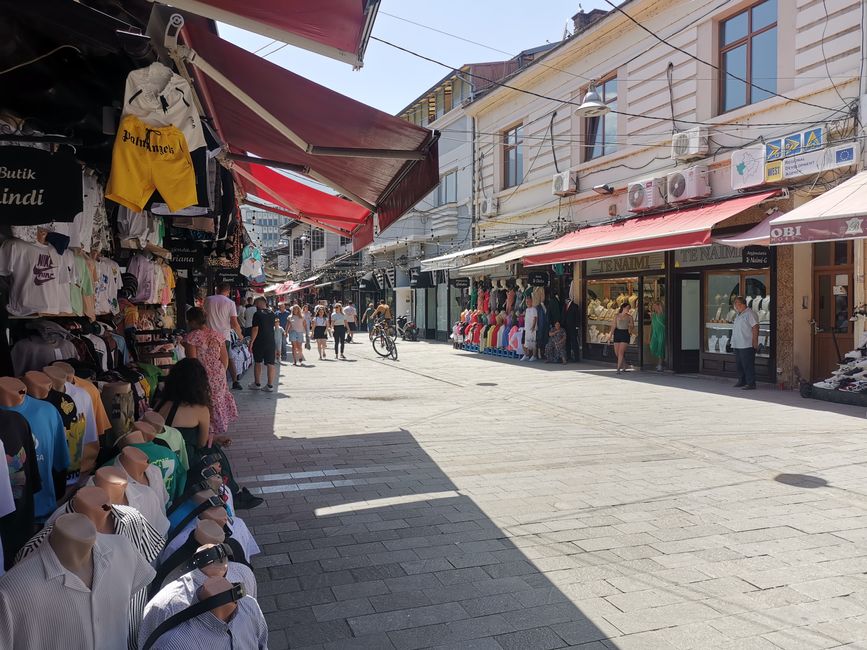
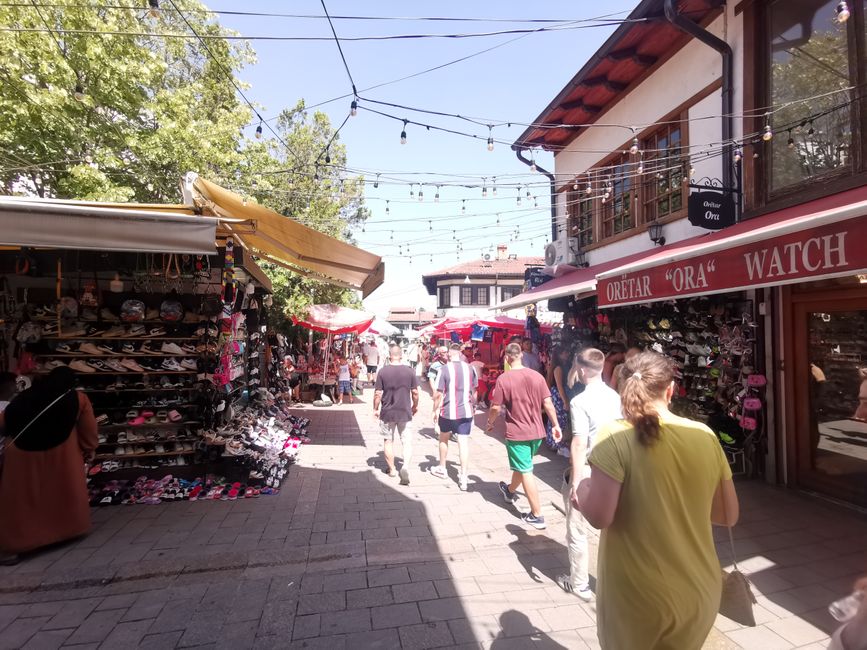
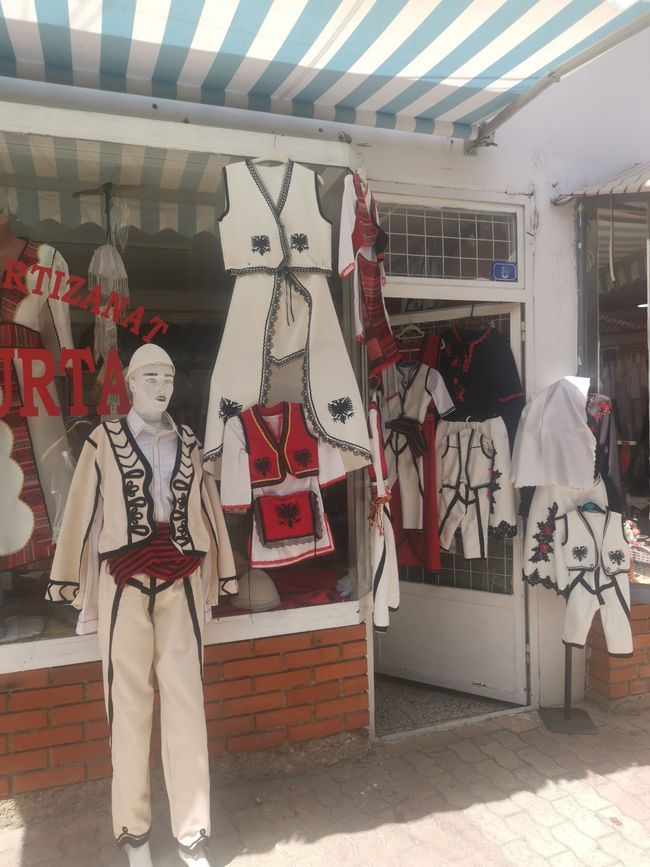
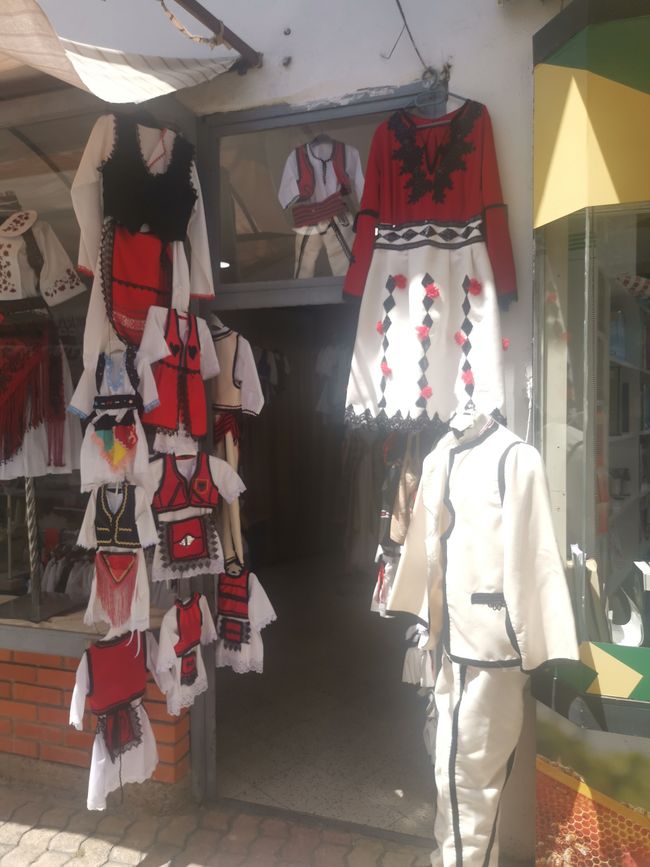
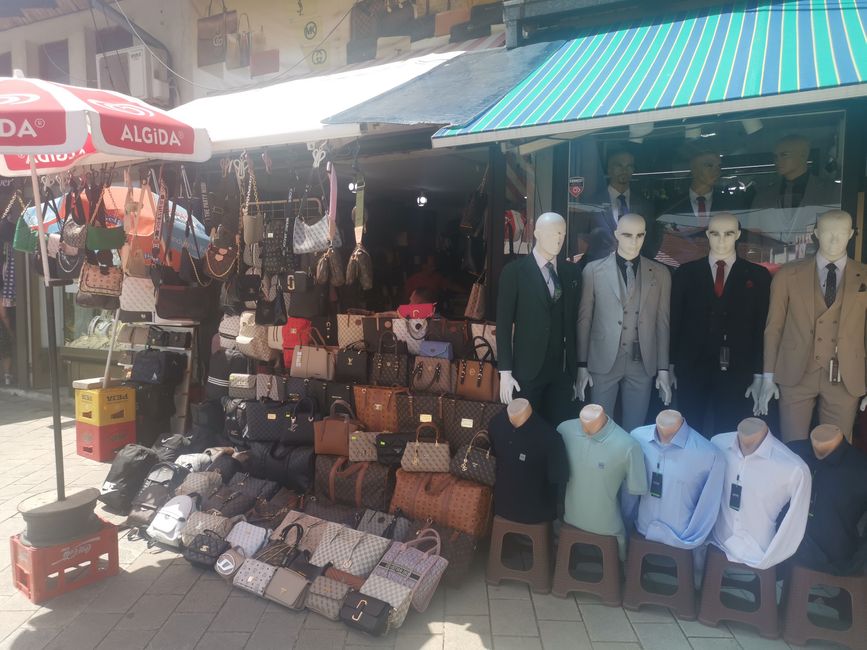
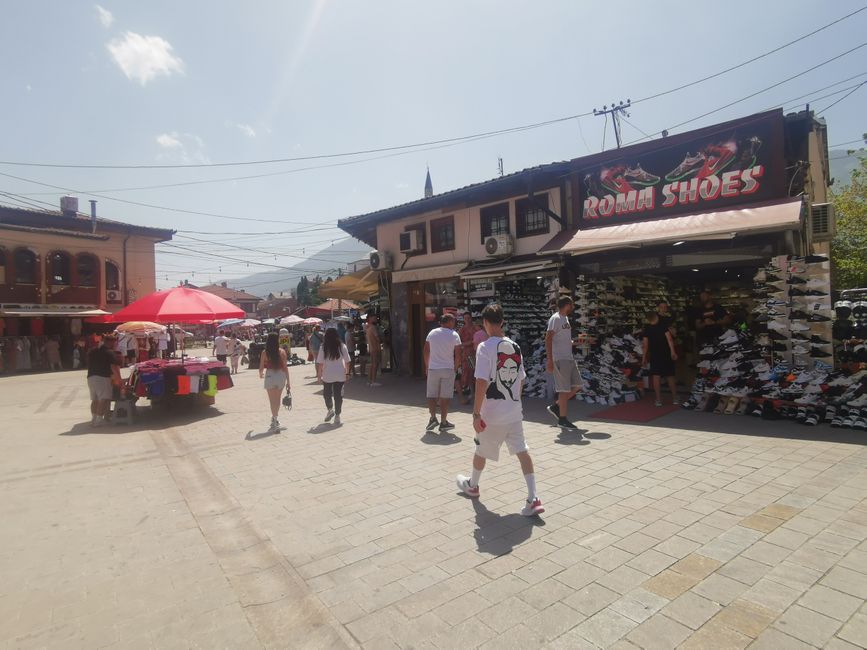
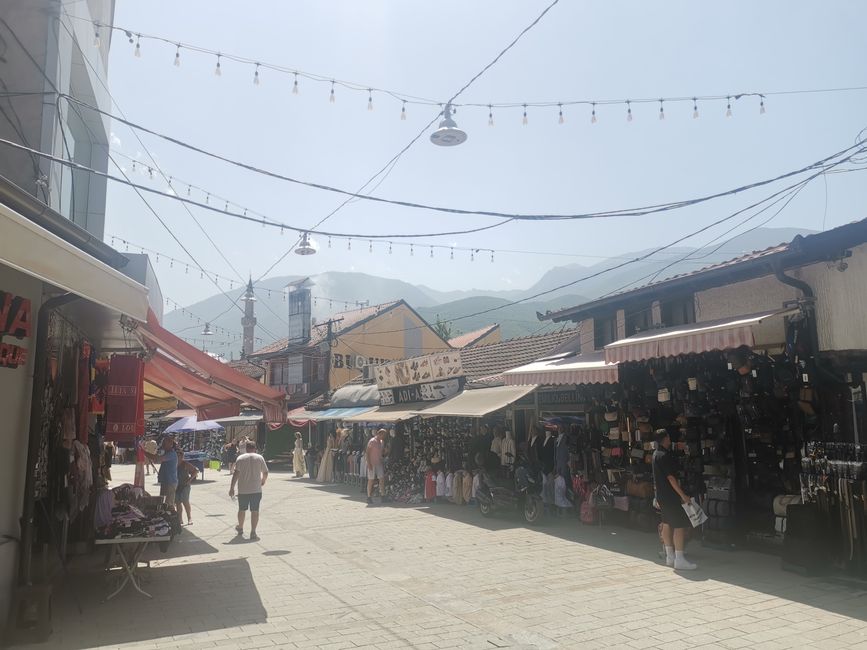
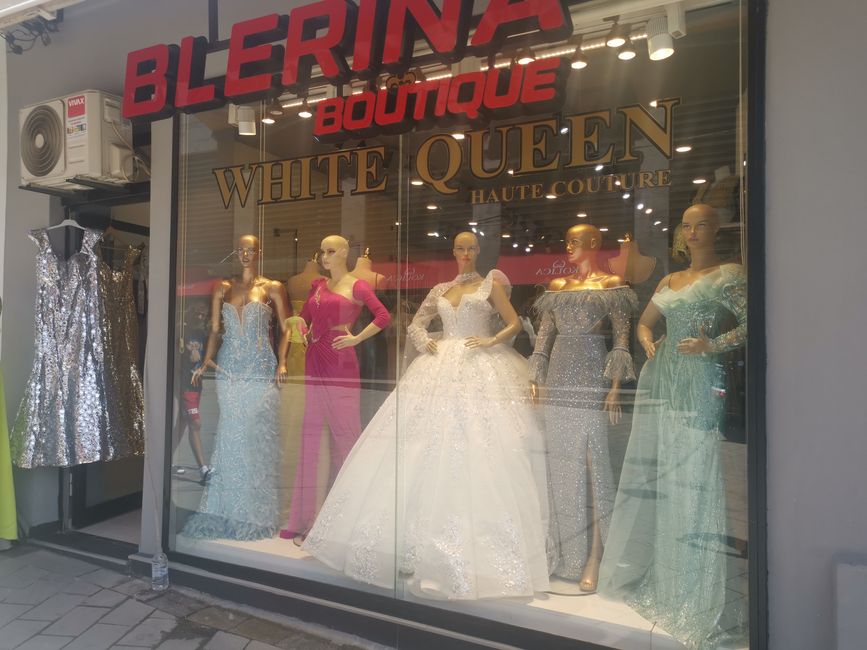
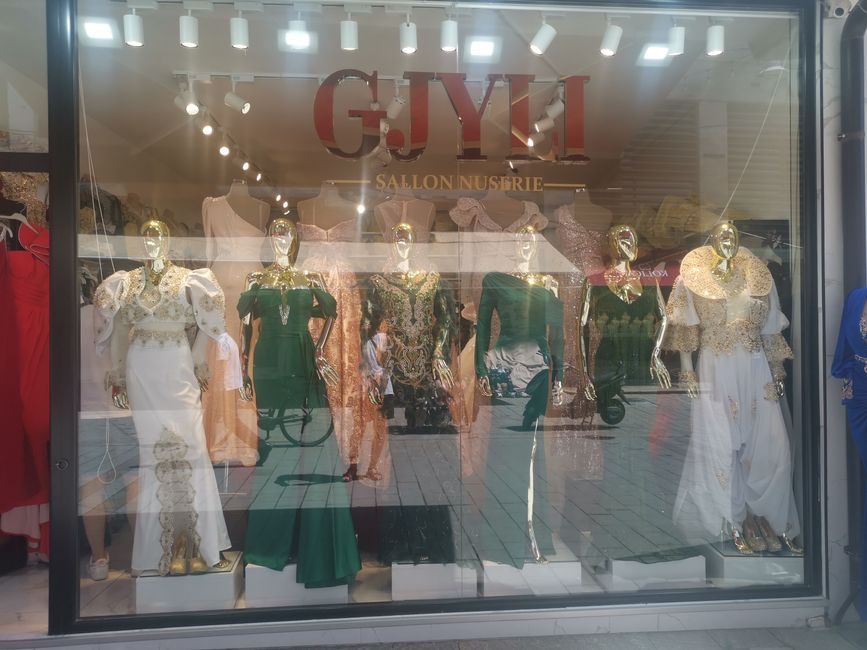
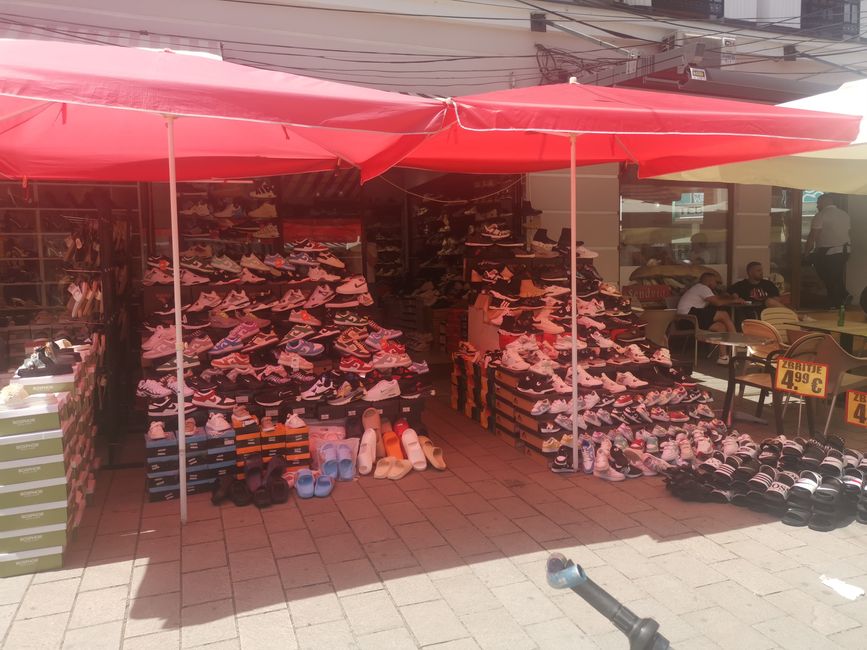
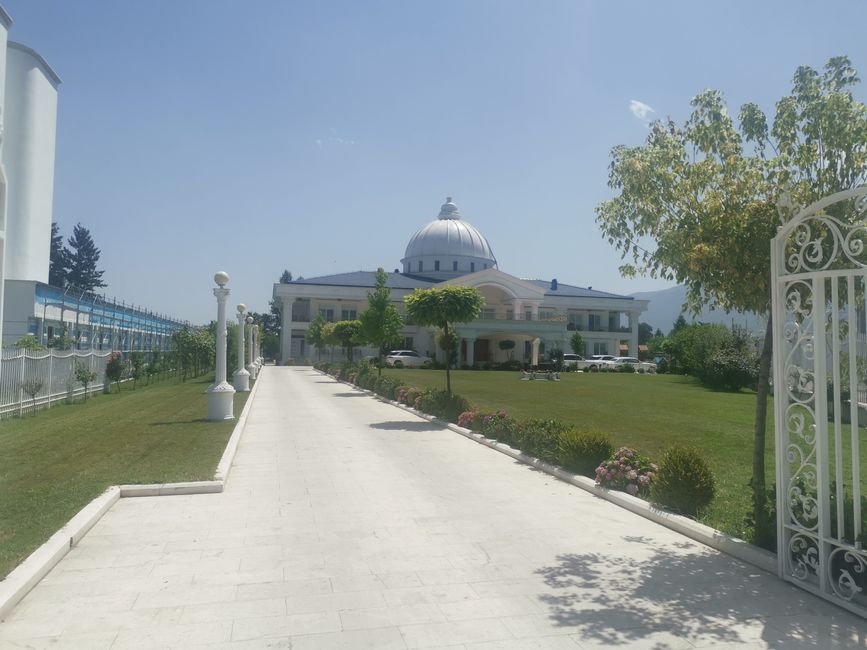
Alabapin si iwe iroyin
23.07.23
As far as writing is concerned, I'm currently a bit behind. This is partly because I didn't have internet everywhere and partly because I'm actually out and about every day until late in the evening... Busy Busy
At the same time, I continue to meet many open-minded people with whom I have conversations, drink coffee, eat together, and ultimately, they change my 'plans', if I even had any, and as a result, I experience many unexpected things. Bürsti also reports more and more small problems that somehow need to be fixed. Busy, Busy...
That's why it's now a bit harder for me to mentally and emotionally go back a few days to write about it. But that's how it is as a blogger, I've been told. I won't disappoint Vakantio.
When I think back to the drive from Pristina to Peja, the first thing that comes to mind is that I wanted to mention the highway. You could say that in Kosovo there are real highways. Good highways. I was told that they started investing in infrastructure here earlier and more targeted than, for example, in Albania. The differences are quite noticeable.
When I think of the drive, I also immediately think of the countless cool cars, popular and trendy, especially German manufacturers, that are omnipresent on all streets here. It almost looks like they want to show off what they have when they come home. The numerous car wash stations are doing their best business these days, because what looks cooler than a Mercedes? Of course, a freshly washed, shiny Mercedes. Or maybe it's just because of the dusty roads.
In addition:
https://www.zueritoday.ch/videos/knattern-posen-runden-drehen-so-praesentieren-schweiz-kosovaren-ihre-autos-in-der-heimat-152656937
Of course, my observation is subjective and without judgment.
For me, this lifestyle seems partly a bit strange. On the other hand, it's the same. Pretty sure. It is what it is and it's exciting and exciting to encounter what you encounter here...
Peja itself seems to have adapted to the tourists and presents itself not entirely touristy with all its clothing, handbag, and jewelry stores. The vibe itself reminded me a lot of Pristina and Prizren. With different 'sights', of course, but somehow similar in terms of atmosphere, offerings, and people. I didn't take much time for that. As usual, I drink coffee, recognized and spoken to as a German, small talk, ride a bike a bit, and stroll through the pedestrian zone.
Peja is almost on the border with Montenegro and is more or less surrounded by mountains, gorges, rivers, and (untouched) nature.
Back at the camper, the daily question arises: What now? Where to? There is little Park4night. No campsites either. Other motorhomes are elsewhere, definitely not here.
Best time to browse through my tried and tested 'Balkan Roadtrip Handbook' again. This literary and pictorial compilation has been quite helpful in the past. It contains coordinates for parking lots, among other things. It also includes selected descriptions of interesting places and useful general information about the countries. Yes, I would recommend it to a friend. (Balkan Peninsula, M. David Brecht, Stefanie Hardt)
One of the recommendations then helped me make the decision and led me to the monastery Visoki Decani, about 30 minutes away.
The guys from the fruit and vegetable stall, where I stopped on the way, were also very communicative. Their main topic was women. Very funny conversation, in which some statements may not completely correspond to my attitude, but still okay.
To my initial surprise, the access road is guarded and monitored by soldiers. I only understand why later. Although I had been told about the difficult political situation time and time again, it was just a story. Seeing the soldiers made a different impression and led me to look into the history and background a bit more closely. My conclusion: it's complicated. As often. History may be history, but people, depending on where they come from and what they have experienced, usually tell their own story, resulting in different perspectives as well.
The Serbian Orthodox monastery is still guarded by European soldiers. In 2004, the KOFOR had to defend the monastery against a mob of Albanian nationalists. KOFOR stands for Kosovo Force and is a multinational military formation established under the leadership of NATO in 1999, after the end of the Kosovo War. Very exciting, but also a topic in itself.
Also in 1998-1999, hostilities, initiated by the UCK (Kosovo Liberation Army, was an Albanian paramilitary ultranationalist organization that fought for the independence of Kosovo), were directed against the Serbian Orthodox monks. This would contribute something to the educational mission once again.
To enter the monastery, I have to change clothes first. Shorts are not allowed. Lucky for me, it wasn't as hot anymore. Photos are also not allowed.
The almost 700-year-old monastery exudes deep serenity. Already upon entering, one is captivated by the spiritual atmosphere. The grounds are well-kept and maintained. A place to feel good and come to oneself. The interior of the monastery, the frescoes, are truly admirable.
Small side story:
In the outdoor area, I meet a Serb named Jovan, who invites me to the 'monastery cafe' to talk about coffee and Raki. Nice guy who was very sociable. At the same time, a bit weird. Very weird, as it would turn out later.
Communication was a bit difficult because he hardly spoke English....
Long story short:
After we exchanged numbers, he kept sending me messages that I couldn't understand. The next day, he kept calling me over and over again. What he actually wanted. No idea. It started to annoy me anyway and had a strange taste. His messages then became increasingly provocative and sexual. Pretty uncool... Blocked contact. Easy. It's strange, but you can encounter something like this too.
At my request, the guys from KOFOR recommend that I continue following the road with my camper for a while and then be able to park at a riverbed.
Best tip. Best spot so far in Kosovo. Finally, nature, peace, and space to spread out, do sports, etc.
I also found it very interesting to drive into the river with his car to wash it there. But since the river is used just as frequently for this purpose as the thousands of car wash stations in the cities, it quickly became clear to me: that's how it's done here. Normal.
And while you're at it, you might as well thoroughly clean all the upholstery from home. But only with biodegradable soap, of course.
On that day, I made fun of it, but the next morning I found myself in the riverbed to give my friend Bürsti another little wash. And to refill water. I was also just about to wash my carpets. It got postponed.
All in all, an excellent spot. Finally, camping in peace again. You can also swim in the beautiful cold water from the mountains.
The decision to stay one more day was already made that evening.
Further video recommendations:
https://www.zueritoday.ch/videos/deshalb-gefaellt-den-schweiz-kosovaren-der-ausgang-in-der-heimat-besser-152668389
https://www.zueritoday.ch/videos/prost-qenan-haziri-nimmt-ein-schweizer-bierfaessli-mit-in-den-kosovo-152625175
Alabapin si iwe iroyin
Idahun
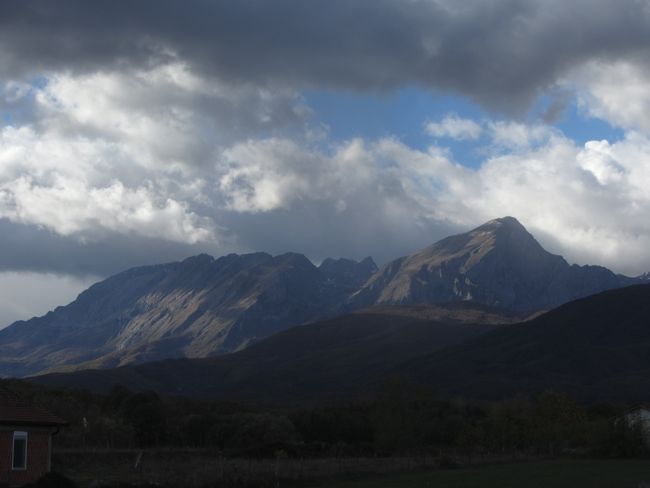
Awọn ijabọ irin-ajo Kosovo
